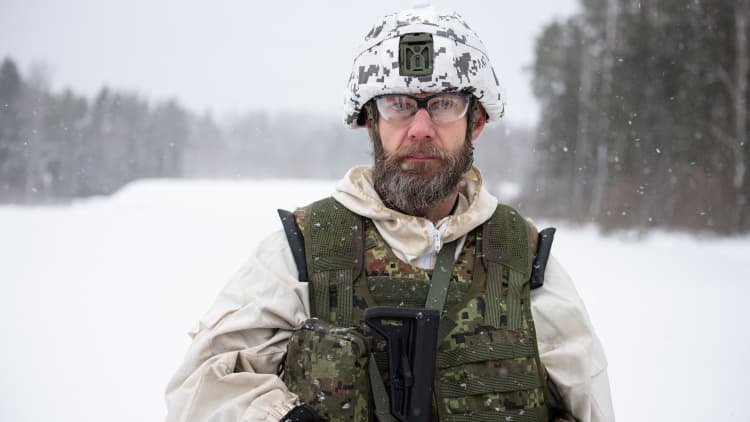Hungarian Prime Minister Viktor Mihaly Orban.
Thierry Monasse | Getty Images News | Getty Images
NATO Secretary-General Jens Stoltenberg said Hungary will neither block nor participate in the military alliance’s deepening support for Ukraine, as he looks to shore up support ahead of a key summit in Washington next month.
“At the summit, I expect allies will agree a leading role for NATO in coordinating and providing security assistance and training for Ukraine. I also expect allies will agree long-term financial pledge to provide military support,” Stoltenberg said Wednesday at a press briefing in Budapest, where he carried out a surprise visit.
“[Hungarian] Prime Minister [Viktor] Orban has made it clear that Hungary will not participate in these efforts. And I accept this position.”
Orban endorsed the agreement during the same briefing. He said that Hungary was given a guarantee that, when it comes to out-of-area operations, it does not have to participate, according to an AP translation of his comments. In exchange for these concessions, Hungary has agreed not to veto NATO’s deepening military aid in support of Ukraine.
“The prime minister [Orban] has assured me that Hungary will not oppose these efforts, enabling other allies to move forward. And he has confirmed that Hungary will meet all of its NATO commitments in full,” Stoltenberg said Wednesday.

All NATO decisions must be agreed by unanimous consensus, effectively affording every member country a veto. Under the coalition’s treaty, participants are only bound to respond militarily if an armed attack takes place against a fellow ally. Ukraine has repeatedly requested to join NATO, but cannot adhere to the alliance while active conflict takes place on its territories. NATO countries, including the alliance’s largest contributor the U.S., nevertheless widely view Moscow as a threat to European security in the event of a spillover of the Ukraine conflict into the broader region.
Under Orban’s nationalist administration, Budapest has distanced itself from the military alliance’s staunch support of Ukraine, maintaining comparatively friendly relations with increasingly isolated Kremlin leader Vladimir Putin. Hungary has increasingly emerged as a thorn in NATO and EU plans by previously stalling or opposing aid packages for Kyiv and sanctions against Moscow. Budapest does not send weapons to Ukraine.

Orban celebrated a victory in the EU elections over the weekend, where his Fidesz party clinched the largest share of votes at 44.9% — but fell short of the majority above 50% it secured in 2019. A self-proclaimed peacemaker, the Hungarian prime minister campaigned on a platform that denounced Europe “as preparing for war, with daily announcements of the handing over of a new section of the road to hell,” according to Reuters.
Hungary’s resistance to additional NATO support in Ukraine comes as some members of the military alliance — including the U.S. and Europe’s largest economy Germany — have removed some restrictions on the defensive use of weapons they provide Kyiv against targets in Russian territories.
French President Emmanuel Macron has previously championed not ruling out the possibility of deploying NATO troops in Ukraine, to widespread backlash from fellow members of the coalition — barring recent signals from Polish Foreign Minister Radoslaw Sikorski.
